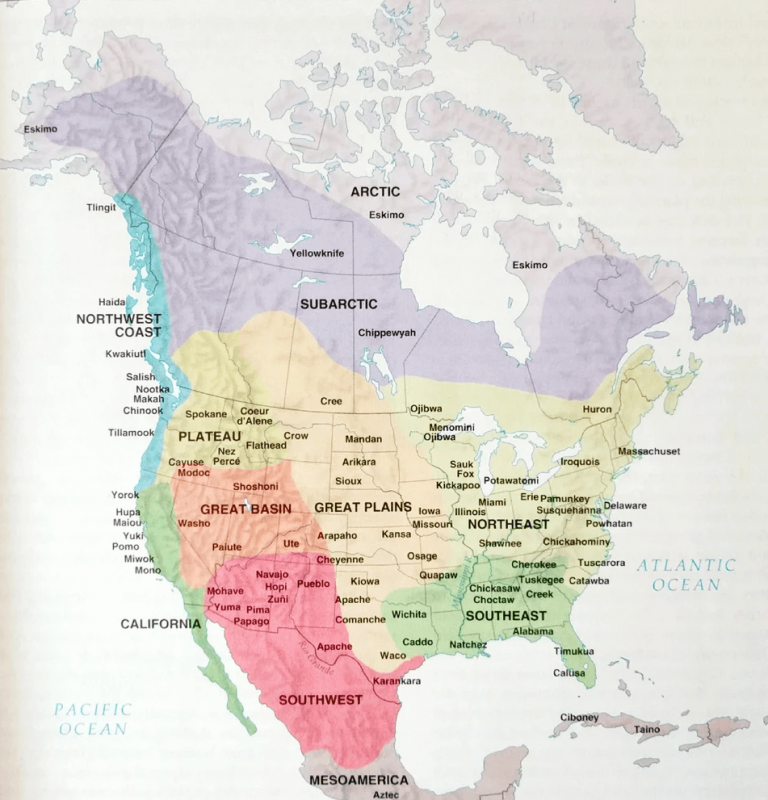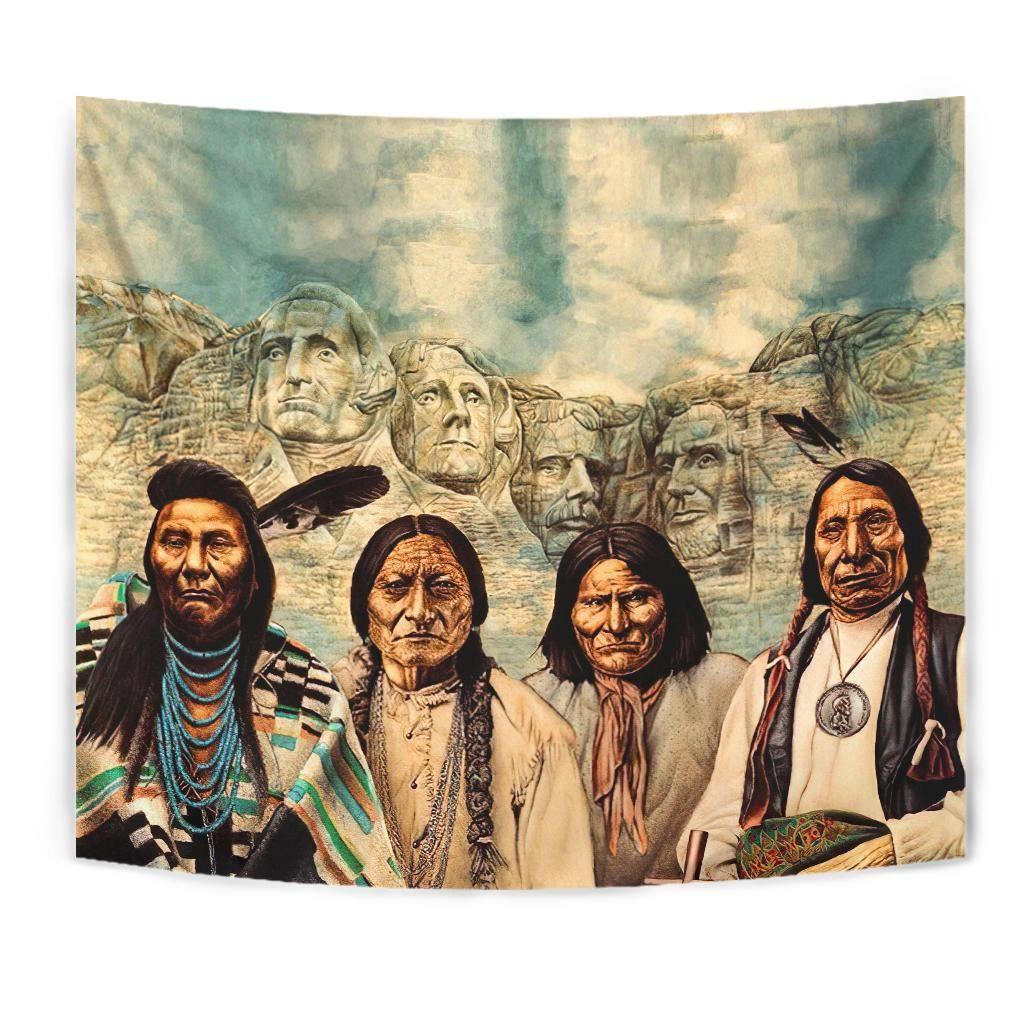Unraveling the Tapestry of Native American Tribe Names: A Journey Through History, Culture, and Meaning
Unraveling the Tapestry of Native American Tribe Names: A Journey Through History, Culture, and Meaning

The tapestry of Native American culture is woven with threads of vibrant history, diverse traditions, and rich languages. One of the most intriguing aspects of this tapestry is the naming of their tribes, each carrying within it a story, a connection to the land, and a reflection of their unique identity.
Exploring the origins and meanings of Native American tribe names is not just a historical exercise but a journey into the heart of their cultural heritage. It allows us to understand the deep connection they hold with their environment, their spiritual beliefs, and the values that have shaped their communities for centuries.
Related Articles: Unraveling the Tapestry of Native American Tribe Names: A Journey Through History, Culture, and Meaning
- Unveiling Your Inner Tribe: A Comprehensive Guide To Native Tribe Name Generators
- Chippewa Natives: Untold Legends of Resilience
- No More Stolen Sisters: Unlocking the True Essence
- Meet the Lakota: A Journey into the Heart of Native American Culture
- Beyond the Veil: Unveiling the Sacred Death Rituals of Native Americans
Beyond the Surface: Understanding the Nuances of Native American Tribe Names
It’s important to approach this topic with sensitivity and respect. The names of Native American tribes are not mere labels, but rather powerful symbols that encapsulate their history, traditions, and cultural identity.
1. The Importance of Respectful Terminology:
- "Tribe" vs. "Nation": While the term "tribe" is commonly used, many Native American communities prefer "nation" or "people" as it better reflects their sovereign status and their sense of self-governance.
- Avoiding Stereotypes: It’s crucial to avoid using outdated or stereotypical terms when discussing Native American tribes. Terms like "Indian" or "savage" are deeply offensive and should be replaced with more respectful language.
2. The Diverse Landscape of Naming Practices:

Native American tribes across the continent have diverse naming practices. These practices can be influenced by:
- Language: Each tribe has its own unique language, and the names often reflect specific linguistic features or cultural values.
- Geography: Many names are derived from the tribe’s location, referencing specific landmarks, rivers, or natural features.
- Spiritual Beliefs: Tribal names can also reflect their connection to the spiritual realm, referencing deities, animal spirits, or important ceremonies.
- Historical Events: Some names commemorate significant events in their history, victories, or important leaders.

3. The Power of Language and Meaning:
Native American languages are rich and nuanced, and the meaning of a tribe’s name often goes beyond a simple translation. Understanding the nuances of language is crucial to appreciating the full depth and meaning of these names.
A Glimpse into the Tapestry: Exploring Some Notable Examples

Let’s delve into some examples of Native American tribe names and explore their fascinating histories and meanings:
1. The Cherokee Nation:
- Meaning: The name "Cherokee" is believed to derive from the word "Tsalagi," meaning "people" or "those who are real people."
- History: The Cherokee Nation has a long and rich history, dating back centuries. They are known for their unique syllabary, a writing system developed in the 19th century.
2. The Navajo Nation:
- Meaning: The name "Navajo" comes from the Spanish word "navajo," which is thought to have originated from the word "na-va-ho," meaning "planted fields."
- History: The Navajo Nation is one of the largest Native American tribes in the United States, known for their intricate weaving, silverwork, and their deep connection to the land.
3. The Lakota Nation:
- Meaning: The word "Lakota" translates to "allies" or "friends."
- History: The Lakota Nation is renowned for their warrior culture, their spiritual beliefs, and their resistance against westward expansion.
4. The Apache Nation:
- Meaning: The name "Apache" is believed to have originated from the Zuni word "apachu," meaning "enemy."
- History: The Apache Nation is known for its resilience and its resistance against colonization. They are also known for their skilled horsemanship and their intricate beadwork.
5. The Hopi Nation:
- Meaning: The word "Hopi" means "peaceful" or "people of peace."
- History: The Hopi Nation has a long and rich cultural heritage, known for their unique religious beliefs, their intricate pottery, and their commitment to traditional ways of life.
The Importance of Preserving and Honoring Native American Names:
Respecting and honoring Native American tribe names is crucial for acknowledging their cultural heritage and their right to self-determination.
- Using Proper Terminology: Always use the name that the tribe prefers, avoiding outdated or disrespectful terms.
- Learning About Their History: Take the time to learn about the history, traditions, and values of each tribe.
- Supporting Native American Communities: Advocate for the rights and interests of Native American communities and support their efforts to preserve their culture.
Conclusion: A Tapestry of Identity and Resilience
The names of Native American tribes are more than just labels; they are powerful symbols of their history, culture, and resilience. By understanding the origins and meanings of these names, we gain a deeper appreciation for the rich tapestry of Native American culture.
Let us strive to use respectful language, honor their traditions, and support their efforts to preserve their heritage. By doing so, we can contribute to a more just and equitable world where Native American voices are heard and their cultures are celebrated.
FAQ about Native American Indian Tribe Names
1. Why is it important to use the correct name for a Native American tribe?
Using the correct name is a matter of respect and recognition of their cultural identity. It acknowledges their right to self-determination and their history.
2. How can I learn more about the history and culture of a specific Native American tribe?
There are many resources available, including tribal websites, museums, and books written by Native American authors.
3. Are there any specific resources for understanding Native American naming practices?
Yes, there are several resources available, including:
- The Native American Languages Act: This act recognizes the importance of preserving Native American languages and cultures.
- Tribal websites: Many tribes have websites that provide information about their history, culture, and language.
- Academic journals and books: There are numerous publications dedicated to the study of Native American languages and cultures.
4. How can I support Native American communities?
- Educate yourself about their history and current issues.
- Support Native-owned businesses and organizations.
- Advocate for policies that support their rights and interests.
- Respect their cultural traditions and practices.
5. What are some common misconceptions about Native American tribes?
- That they are all the same: Native American tribes are incredibly diverse, with unique languages, traditions, and histories.
- That they are all from the past: Native American communities are vibrant and thriving today, with rich cultures and traditions.
- That they are all "primitive": This term is offensive and perpetuates harmful stereotypes. Native American cultures are complex and sophisticated.
Remember, the journey of understanding Native American tribe names is ongoing. By approaching this topic with respect, sensitivity, and a genuine desire to learn, we can contribute to a more inclusive and equitable society that honors the rich heritage of Native American cultures.

Closure
Thus, we hope this article has provided valuable insights into Unraveling the Tapestry of Native American Tribe Names: A Journey Through History, Culture, and Meaning. We appreciate your attention to our article. See you in our next article!